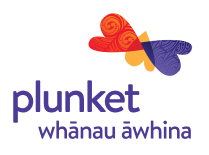Parenting Your Child In Their First 5 Years
Parenting Your Child In Their First 5 Years
Watch a video to see 3 different whānau share their stories about the rewards and challenges of being parents. We hear how the Well Child Tamariki Ora nurses give them support and advice about caring for your child from 1 to 5 years of age.
The first 5 years
"The best advice I could give at this age would be to spend as much time together doing things."
In the video, we hear from Erika, a Well Child Tamariki Ora nurse. She explains ...
"Some of the things that can help our children's learning and development are things like taking the time to read to them, sing to them, play with them. Talking is very important as well."
"The best advice I could give at this age would be to spend as much time together doing things, so that children are learning at the same time, as well as you're there supervising them, letting them do stuff. That's the best way to learn, to have fun, and be safe together."
Development
There are many ways of learning - tamariki learn by watching, by listening and especially by doing. Tamariki do best in an environment which is interesting and where they feel loved and safe.
See the KidsHealth section on learning and development for more information.
Being active
Activity is just as important for your baby or young child as it is for older tamariki - it helps them to learn and grow.
See the KidsHealth page on keeping active for tips and resources.
Teeth
By about 3 years of age your child will have their first set of teeth - 20 'baby' teeth. Healthy baby teeth usually mean healthy adult teeth too, so it's important you look after your child's first teeth.
See the KidsHealth page on caring for your child's teeth to learn more.
Nutrition
There are lots of things you can do to help your child learn healthy eating habits right from the start.
See the KidsHealth section on healthy eating for more tips.
Fussy eating
Fussy eating is common in tamariki, and it's common for them to dislike certain foods. Tamariki will gradually eat and explore new foods as they get older. Providing healthy food and an enjoyable eating environment for your child will help them enjoy mealtimes.
See the KidsHealth page on fussy eating to learn more.
Sleep needs
Tamariki need sleep to grow and develop. Sleep needs vary and change as they grow. Knowing what to expect at each stage helps you understand your baby's sleep needs as they grow.
See the KidsHealth section on normal sleep to learn about sleep needs at different ages.
Immunisation
Immunisation protects tamariki against a range of serious diseases. Protect tamariki for life - immunise. Start vaccinating pēpi the day they turn 6 weeks old. Continue with all vaccinations for full protection.
See the KidsHealth section on immunisation to learn more.
Safe home environment
Make sure your home environment is safe for your baby. Never leave tamariki, especially those under 5 years of age, unsupervised near water, including baths, buckets and water troughs. Keep medicine in a high place out of reach and out of sight of children.
See the KidsHealth section on injury prevention for more tips.
Warm and dry home
Having a warm and dry home means germs such as strep throat, which can lead to rheumatic fever, are less likely to spread. Find out what support is available to help you keep your home warm and dry.
See the KidsHealth page on healthy homes for more information.
Smoke-free environment
Make sure your baby's environment is smoke-free. Cigarette smoke is very harmful for your baby.
If you want to give up smoking:
- call the free Quitline Me Mutu on 0800 778 778 or text 4006
- check out the website Quitline
- ask a health professional
When to see a health professional
Pēpi and young tamariki get sick often – it's a normal part of childhood. Get help quickly if your child shows any danger signs.
See KidsHealth for advice about when to seek help if your child is sick.

Call PlunketLine on 0800 933 922 for parenting advice.
This page last reviewed 01 October 2024.
Do you have any feedback for KidsHealth?
If you have any feedback about the KidsHealth website, or have a suggestion for new content, please get in touch with us.
Email us now